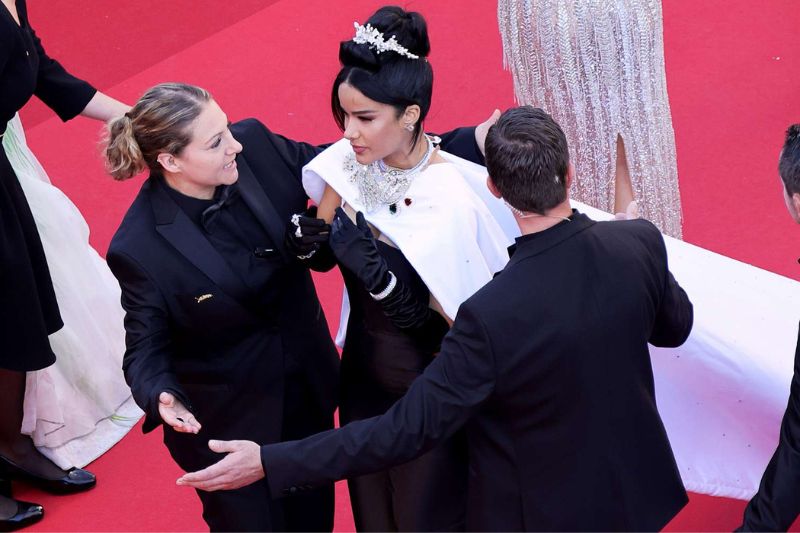Biomedical communication, a critical field shaped by Selma and Lois DeBakey, has transformed how medical information is disseminated.
Their efforts have bridged the gap between medical professionals and the public, simplifying complex medical jargon.
Quiet Pioneers of American Medical Literature

Selma and Lois DeBakey, who prefer a low profile, are revered in the medical literary community.
As tenured professors of Scientific Communications at Baylor College of Medicine, their extensive involvement includes serving on editorial boards for prestigious publications such as the American Heritage Dictionary, Encyclopedia Britannica, and the Journal of the American Medical Association.
Family Dedication

The DeBakeys are deeply committed to their brother, renowned surgeon Dr. Michael E. DeBakey. Dr. Donald A.B. Lindberg, director of the National Library of Medicine, highlights that supporting Michael has been a significant aspect of their lives.
Their dedication is echoed by Dr. Philip A. Salem, who describes the sisters as indispensable to their brother’s legend.
“Deep down, you really depend on your siblings for the kind of support that is very subtle, but, nonetheless, is there,” DeBakey says. “You share your thoughts with them, even though you might not be able to share them with others. You don’t feel alone.”
Dr. Salem says they were invaluable to Michael: “They were his buffer, his filter and his propellers. His success is directly attributable to their devotion.”
Educational Foundations and Career Achievements

Raised in Lake Charles, Louisiana, by Lebanese Christian immigrants, the DeBakey siblings were academically inclined from a young age, reading the entire Encyclopedia Britannica and gaining a solid foundation in Latin—the language of medicine. Selma and Lois’s educational pursuits led them to Newcomb College, where they excelled in languages and mathematics, respectively, and furthered their education at Tulane University.
Their move to Baylor College of Medicine in 1968 marked a significant shift, with their courses quickly gaining popularity, reflecting their profound impact on medical education.
The Genesis of Biomedical Writing

The need for clearer scientific communication, noted early in Michael’s career, led to Selma and Lois applying their academic prowess to enhance medical writing.
Their work extended beyond academic circles, leading to the first approved medical communications course at a U.S. medical school.
Innovators in Houston
The sisters’ relocation to Houston was pivotal. At Baylor College of Medicine, Michael DeBakey became the first president, greatly benefiting from his sisters’ counsel and support.
Their courses, renowned for blending rigor with humor through cartoons, had extensive waiting lists, reflecting their significant impact.
Recognition and Legacy
Their work is acknowledged by leaders in the field, including Dr. Antonio Gotto of Weill Cornell Medical College, who cites their crucial role in Michael DeBakey’s success.
Lois’s contributions include a seminal book on medical journal editing.
Career Achievements and Innovations:
- Selma and Lois DeBakey established the first communication course approved for a medical school curriculum at Tulane University School of Medicine in 1962. This course emphasized clarity in medical communication and was instrumental in shaping how doctors communicate with patients and peers.
- They continued this educational mission at Baylor College of Medicine in Houston from 1968, focusing on improving scientific writing and clarity in medical communication.
Impact and Recognition:
- The DeBakey sisters’ work was recognized with numerous awards, including the Harold Swanberg Distinguished Service Award from the American Medical Writer’s Association. Lois DeBakey was also honored with the first John P. McGovern Award Lectureship by the Medical Library Association in 1983, underscoring her significant contributions to medical literature and education.
Broader Influence and Legacy:
- Beyond their formal teaching, Selma and Lois traveled globally, hosting seminars to educate doctors on effective communication. This international reach helped standardize medical communication across borders, ensuring that medical professionals worldwide could benefit from clearer, more direct communication methods.
- Their impact is enduring, with ongoing lectureships and scholarships in their names, such as the DeBakey Scholarship Fund at Baylor College of Medicine, which supports students in medical humanities—a testament to their lasting legacy in medical education.
Their work fundamentally transformed how medical information is communicated, making it more accessible and understandable, not just within the medical community but also for patients, thereby enhancing the overall healthcare communication landscape














